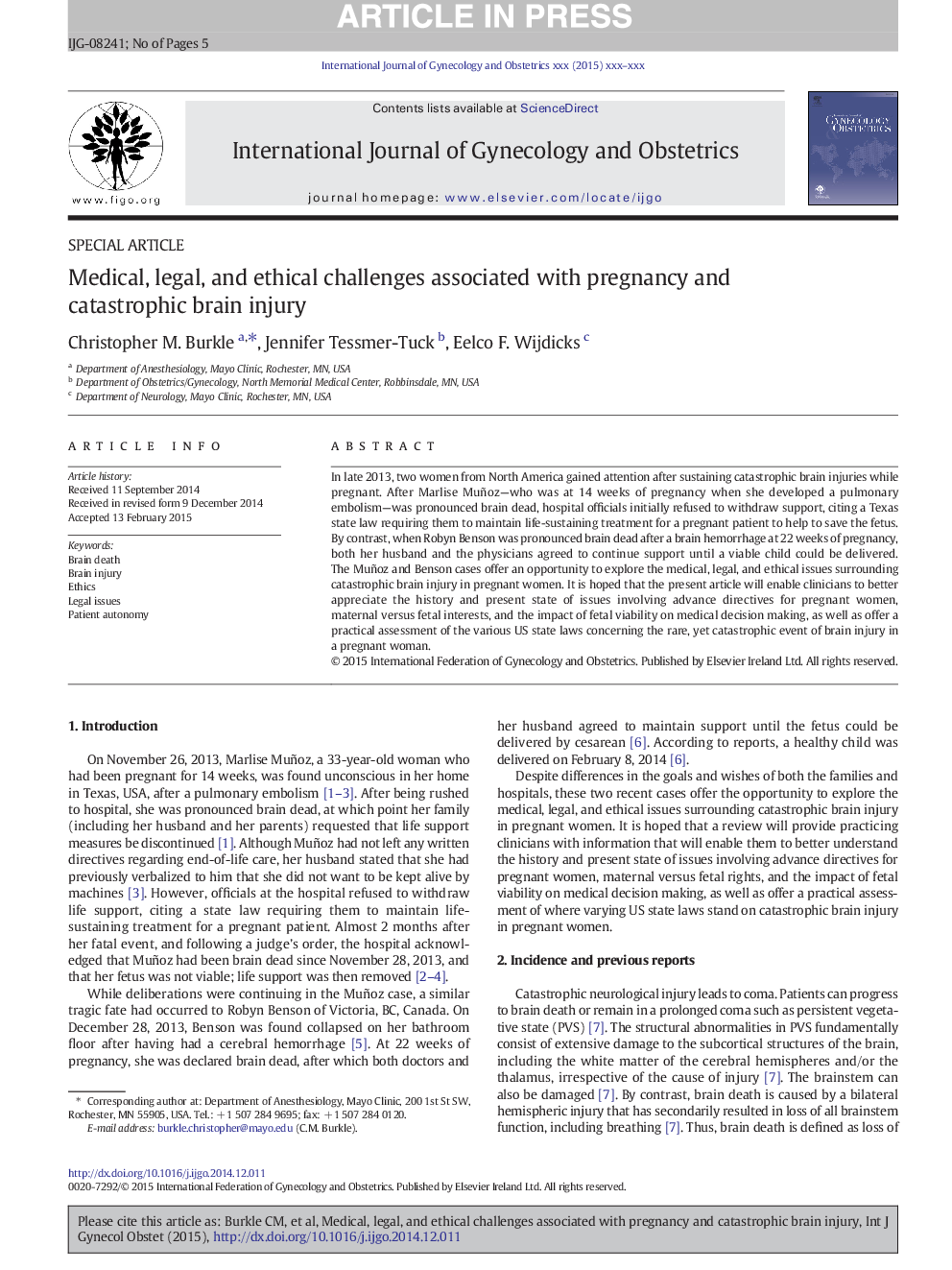| Article ID | Journal | Published Year | Pages | File Type |
|---|---|---|---|---|
| 6187155 | International Journal of Gynecology & Obstetrics | 2015 | 5 Pages |
Abstract
In late 2013, two women from North America gained attention after sustaining catastrophic brain injuries while pregnant. After Marlise Muñoz-who was at 14Â weeks of pregnancy when she developed a pulmonary embolism-was pronounced brain dead, hospital officials initially refused to withdraw support, citing a Texas state law requiring them to maintain life-sustaining treatment for a pregnant patient to help to save the fetus. By contrast, when Robyn Benson was pronounced brain dead after a brain hemorrhage at 22Â weeks of pregnancy, both her husband and the physicians agreed to continue support until a viable child could be delivered. The Muñoz and Benson cases offer an opportunity to explore the medical, legal, and ethical issues surrounding catastrophic brain injury in pregnant women. It is hoped that the present article will enable clinicians to better appreciate the history and present state of issues involving advance directives for pregnant women, maternal versus fetal interests, and the impact of fetal viability on medical decision making, as well as offer a practical assessment of the various US state laws concerning the rare, yet catastrophic event of brain injury in a pregnant woman.
Related Topics
Health Sciences
Medicine and Dentistry
Obstetrics, Gynecology and Women's Health
Authors
Christopher M. Burkle, Jennifer Tessmer-Tuck, Eelco F. Wijdicks,
